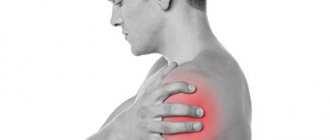The modern rhythm of life dictates its own rules and often the people’s psyche cannot withstand everyday emotional stress. Very often, a person in a state of strong excitability of the nervous system is overcome by thoughts of what to do if everything infuriates and irritates. Hot temper and anger arise as a sharp reaction even to insignificant stimuli. The described condition is accompanied by anxiety, restlessness, and women often experience tearfulness. Hot temper and irritability are accompanied by algia, insomnia, a tendency toward depressive moods, heightened suspiciousness, changes in pulse and blood pressure, and decreased performance.
The described outbreaks may be expressed differently for everyone. It happens that they go undetected for others, but everything inside the person “boils” and he does not outwardly show indignation. Another version of the attacks of indignation manifests itself in destructive anger. Male and female behavior in moments of intense irritability can differ. You can tell that a man is angry and annoyed by something by aggression, which manifests itself in hitting the table with his fist, throwing his phone on the floor, beating someone, etc. In women, attacks are often accompanied by hysterics, insults, accusations, and crying. There are cases when women do not disdain assault.
Causes of irritability
Irritability occurs as a result of a combination of physiological, psychological and situational factors. It can manifest itself during certain periods of life - during stress, illness, increased workload - or be a feature of a person’s character. The causes of irritability are divided into three groups: physiological characteristics, psychological factors and various diseases.
Physiological reasons
Sudden reactions of anger and indignation often have a physiological basis - increased readiness of the nervous system, release of catecholamines and hormones, lack of compounds that ensure balanced self-regulation. This group of reasons includes:
- Temperament.
Temperament traits are based on the functioning of the central nervous system. People with a mobile and unstable type of nervous organization - choleric and melancholic - are prone to irritability. - Changes in hormonal levels.
Hormonal imbalance is a lack of some hormones and an excess of others. It affects the functioning of the brain, in particular the functioning of the centers responsible for the manifestation of emotions. Therefore, irritability is common in women during menstruation, pregnancy, and menopause. - Fatigue.
As fatigue accumulates, the ratio of excitation and inhibition processes in the nervous system changes, and the body's reactivity increases. A person’s ability to correctly evaluate incoming information and choose an adequate response deteriorates. The causes of irritability in such cases are everyday problems, communication with other people. - Lack of sleep.
With inadequate sleep, the level of cortisol, the stress hormone, increases in the body. At the physiological level, the body becomes ready to fight - adrenaline is produced, glucose consumption increases, irritability and aggressiveness increase. - Vitamin deficiency.
Hypovitaminosis and a lack of certain microelements negatively affect the functioning of the nervous and endocrine systems, causing mood changes, lethargy, apathy, irritability, and nervousness. Often these symptoms are triggered by a deficiency of B vitamins, iodine, zinc and magnesium. - Lack or excess of physical activity.
Irritability and emotional imbalance can occur due to a sedentary lifestyle or when performing intense physical activity that does not correspond to the person’s level of training. In both cases, there is an imbalance in the processes of inhibition and excitation of the central nervous system.
Psychological reasons
Irritation is partly due to the characteristics of the human psyche, the ways in which he reacts to internal experiences and external events. Those most prone to increased irritability are those with unstable self-esteem, anxiety, and a low level of responsibility. The following factors can provoke increased irritability:
- Stress.
Daily mental stress, negative emotional experiences, and conflicts lead to the development of a stressful state. It is characterized by the mobilization of all body systems and the readiness to fight back against adverse influences. Increased irritability ensures a quick response to the slightest threat. - Frustration.
With frustration, a person experiences a strong desire to take action to satisfy a need, but cannot carry it out - he encounters an obstacle, does not have enough resources (knowledge, time, money). As a result, he experiences disappointment, dissatisfaction, and irritation. - Neuropsychic exhaustion.
A common cause of irritability is high emotional and intellectual stress, prolonged stress, which provokes a state of nervous exhaustion. At the same time, a person’s ability to work fully, communicate with people and relax is reduced. Instead, a feeling of hopelessness, irritability, and despondency grows. - Wrong upbringing.
In some families, parents regularly show outbursts of irritation when communicating with each other and with their children. Gradually, the child adopts this way of responding to any unpleasant events. In adolescence and youth, irritability is consolidated and becomes a character trait. - Dissatisfaction.
The inconsistency of any area of life with the desired level is the cause of dissatisfaction, and as a result - irritability. Often people are not satisfied with their financial situation, conditions and content of work, and family relationships.
Mental and somatic illnesses
Irritability can be a symptom of mental disorders and somatic diseases. In case of mental disorders, the cause of irritability is the patient’s altered state of mind: emotional instability, decreased self-control, and inability to adequately assess current events are observed. In somatic diseases, there are two mechanisms that provoke irritability: primary – damage to the central nervous system or changes in the functioning of endocrine organs; secondary – long-term or severe course of the disease, worsening the quality of life. The most common reasons are:
- Neurotic disorders.
In neuroses, irritability is considered one of the leading symptoms; it is potentiated by insomnia and nervous exhaustion. Combined with anxiety, decreased performance, and depressed mood. Most characteristic of neurasthenia, depression, obsessive-compulsive neurosis. - Personality disorders.
Psychopathy is a pathologically formed character with aggravated traits that interfere with social interaction. Patients with unstable, epileptoid and excitable type of disorder react to most situations too emotionally and impulsively: they conflict, get angry, and become irritated. - Schizophrenia.
In schizophrenia, irritability often manifests itself in the prodromal period and during remissions. It is stimulated by a decrease in the ability to clearly perceive what is happening, suspicion of others, and loss of a sense of self-identification (Who am I? What am I?). - Epilepsy.
In patients with epilepsy, the functioning of the brain changes, often affecting their character and behavior. A typical symptom of the disease is dysphoria - an emotional disturbance that is a combination of sadness, anger, anxiety and extreme irritability. - Organic lesions of the central nervous system.
Demyelinating pathologies, neurodegenerative and vascular diseases, brain tumors, traumatic brain injuries, and intoxications constitute a group of organic neurological pathologies. In all cases, dystrophic changes in the nervous tissue occur and the functioning of neurons is disrupted. Often pathological processes cover areas of the brain responsible for emotions and behavior, as a result a person becomes irritable, impulsive, and whiny. - Endocrine pathologies.
Hormonal diseases are accompanied by a violation of the humoral regulation of emotions. Depending on the nature of the hormone imbalance, the patient’s mood and behavior changes. Common causes of irritability are hyperthyroidism, diabetes mellitus, and Cushing's disease. - Alcoholism and drug addiction.
In alcohol and drug addiction, irritability is caused, on the one hand, by intoxication - organic brain damage, on the other - by withdrawal syndrome, frustration of the need for the next intake of alcohol or drugs. Other symptoms are anxiety, wariness, unmotivated hatred of people. - Long-term serious illnesses.
A long-term disease that limits a person’s activity, accompanied by pain, becomes a provoking factor of emotional disorders. Patients experience depression, despondency, melancholy, followed by periods of irritability and anger.
What are mood swings?
Experts define mood swings as an affective disorder. The key sign of this disorder is a sharp change in a person’s emotional background, when he ceases to control his mood and behavior.
People suffering from bipolar affective disorder feel like they are on a roller coaster, where the feeling of happiness changes to the deepest despair.
Mood swings, as a rule, are unpredictable and mostly independent of the situation, and the expression of emotions is practically beyond self-control. All this can be accompanied by deep depression and sleep disturbances.
Many people believe that they are characterized by mood swings. In fact, they naturally experience a change in their emotional state, which is a normal reaction to various situations based on their temperamental characteristics.
We can speak with confidence about mood lability if the transition from a joyful state to a state of sadness, or vice versa, occurs at lightning speed, without an objective reason. This transition is most often directed towards a negative emotional state and, as a rule, is combined with a high level of anxiety and accompanying psychological problems.
Types of Moods
The identified types of moods are almost identical to the types of emotions:
- Stenic mood.
A good mood is characterized by: enthusiasm, inspiration, cheerfulness with bursts of vigor, optimism and happiness. Activity is shown uncritically if a person claims to do more than he knows and can do. As a rule, a person undertakes to lecture everyone and attracts attention to himself at any cost. This often leads to neurotic disorder
- Asthenic mood.
A manic mood is characterized by: carelessness, carelessness, euphoria, complacency and at the same time, naivety, indifference to serious, vital issues. To cause this condition, a healthy person needs alcohol and drugs, and a creative person or athlete needs a spectator.
- Public mood.
Public mood, as public consciousness, which reflects the general feelings and moods in a team, social group, community or among the people.
Diagnostics
Diagnosis of irritability is carried out by psychiatrists, psychotherapists, and psychologists. As a rule, identifying this problem is not difficult - patients or their relatives report changes in behavior, communication difficulties, and increased conflict. To collect complete information about the emotional state, the following methods are used:
- Conversation.
During the interview, the doctor clarifies when the outbursts of irritability began, what situations cause them, how they affect the patient’s life, and whether the irritability has causes that are not related to psychological characteristics (somatic illnesses). More often, patients are critical of changing their emotions and are willing to talk about problems. - Observation.
During communication, the specialist notes external signs of irritability: changes in voice timbre, acceleration of speech, restlessness, fussiness, abruptness of movements. This condition can be caused by waiting for an appointment, questions from the doctor, or the surrounding environment. - Psychodiagnostic questionnaires.
Tests are used to study emotional and personal qualities. The level of irritability is assessed using the Bass-Darkey questionnaire, Cattell personality questionnaire, MMPI and other methods. - Projective tests.
If irritability is denied, the patient is asked to perform projective tasks that help identify hidden or unconscious personality traits. To diagnose irritability, the Wagner hand test, the Rosenzweig frustration test, and a drawing of a non-existent animal are used.
Comprehensive psychodiagnostics allows you to determine the causes of irritability
You eat too many sweets
Sugar is also an addictive drug. How Sugar Affects Your Mood. It stimulates the areas of the brain that are responsible for pleasure. With regular consumption of sweets, the brain gets used to the stimulation, its sensitivity decreases - and as a result, we need more and more sugar to get the same dose of joy.
To process a large amount of sweets, the body begins to release a lot of insulin into the blood - a hormone that causes cells to actively extract glucose from the blood. Because of this, blood sugar levels drop sharply. Since its rapid fall means a threat to life, the body immediately releases adrenaline. This stress hormone triggers the notorious “fight or flight” response - we described its consequences above.
What to do
Try to figure out if you are consuming too much sugar. “Too much” is, of course, a flexible concept, but there are still some officially established limits.
For example, the American Heart Association insists How Much Sugar Is Too Much:
- men should consume no more than 9 teaspoons (36 g) of sugar per day;
- women - no more than 6 teaspoons (24 g).
The American Dietary Guidelines are a little more humane: they limit the Dietary Guidelines 2015‑2020. Executive Summary maximum sugar intake is 10% of daily caloric intake. For a person consuming 2,000 kcal per day, the maximum allowable dose of sugar is 200 kcal, or 50 g.
Please note that a standard can of cola contains 10 teaspoons (about 40 g) of sugar. If you drink one such jar every day, you are already exceeding the maximum dose established by cardiologists.
Therefore, try to reduce the usual amount of sweets - perhaps this is what will help you overcome irritability.
Treatment
Group behavioral psychotherapy
The main goal of group trainings is to change the patient’s behavior, get rid of feelings of dissatisfaction, and teach constructive ways of expressing grievances, claims, and comments. During classes, participants recreate conflict situations, try to use techniques for switching emotions, and take the position of an interlocutor. After the main training, there is a collective discussion of experiences, including irritation.
Individual consultations with a psychotherapist
In addition to behavioral methods, sessions are conducted aimed at mastering relaxation and distraction skills. The psychotherapist discusses with the patient possible causes of irritability - stress, nervous exhaustion, problems in family life and at work. Of the practical skills that help relieve tension, the most effective are breathing techniques and auto-training.
You have a hormonal imbalance
Dozens of reasons can throw your hormonal balance out of balance. Here are the most common Irritability Causes:
- premenstrual syndrome (PMS);
- polycystic ovary syndrome;
- menopause;
- hyperthyroidism - increased production of thyroid hormones;
- diabetes.
What to do
If irritability hits you on the eve of your period and goes away after it ends, you don’t need to do anything special. Just note to yourself that this is exactly your reaction to PMS, and try to reduce physical and emotional stress these days.
But if the period of irritability drags on for weeks or even months, it is worth consulting with a therapist. The doctor will conduct an examination, ask you to take blood and urine tests and, if necessary, refer you to a more specialized specialist.
You are too tired physically
A lot of physical labor or training and little time for recovery - this is the right recipe. Are you getting too much exercise? fatigue and bad mood. When your body is overloaded, the stress hormone cortisol begins to be actively produced. Among other things, it causes irritability and anxiety.
What to do
Slow down. Rest at least 6 hours between workouts and be sure to give yourself a full day off (completely free from physical labor) at least once a week. If you feel that your irritability may be due to physical fatigue, take a longer break. For example, take a vacation.
You are beginning to have a mental disorder
Irritability is one of the first symptoms of:
- anxiety disorder;
- bipolar disorder;
- schizophrenia;
- depression.
What to do
Mental disorders have other symptoms as well. For example, mood swings, loss of interest in activities that previously fascinated you, deterioration of memory and concentration, suspicion, isolation, character changes. If you observe something like this, contact a psychotherapist as soon as possible.
You are trying to give up cigarettes, coffee or alcohol
When you try to say goodbye to a particular habit to which you have already developed an addiction, withdrawal syndrome occurs (also known as abstinence, or withdrawal). The brain became accustomed to the effects of psychoactive substances that came with nicotine, alcohol, coffee, and drugs. And it takes time for it to start working without regular outside help.
Withdrawal symptoms include depressed mood, sleep problems, anxiety, and irritability.
What to do
Wait. When your body is rebuilt, that is, the dependence on the bad habit is overcome, you will regain peace of mind.
Are you taking medication?
Some drugs can affect your mood. Especially if you do not follow the dosage. For example, this applies to thyroxine, a medicine prescribed for insufficient production of thyroid hormones. Or prednisone Why am I so irritable? , used to combat allergies and asthma.
What to do
If you are taking any drug on a regular basis, look at the instructions, which list its side effects. If you find mood swings, anxiety, irritability among them, contact your doctor. He may be able to find an alternative medicine for you.










